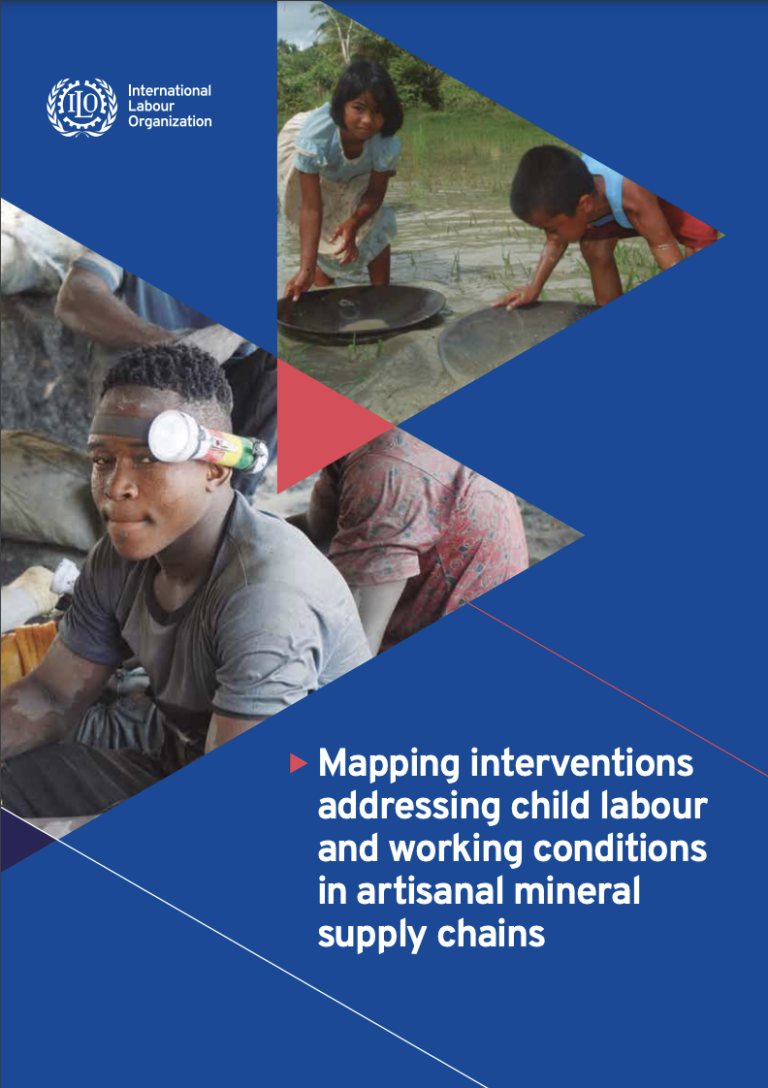Supplier Responsibility
Good PracticesPublicationsThis 2019 Annual Progress Report outlines Apple's efforts in 2018.
At the request of the International Labour Organization (ILO), Levin Sources conducted this mapping (mainly desk research) of interventions (projects and initiatives) to address child labour and poor working conditions (either directly or indirectly) in the artisanal and smallscale mining (ASM) sector across different minerals. It included both existing and completed projects funded primarily by international donors. The study did not include programmes funded and implemented by governments or the private sector. It was conducted before the outbreak of COVID-19. Consequently, the research did not assess the negative impact of the pandemic on child labour in the ASM sector.
As the desk research progressed, it became clear that the research would benefit from a number of interviews, which were carried out with those organizations that responded to our invitation. Some of the projects and initiatives analysed are implemented by the ILO, however other organizations and/or multistakeholder platforms were also reviewed to ensure the broader picture could be captured. This research outlines lessons learned and gaps from existing interventions. Its preliminary findings were presented at the Inter-Regional Knowledge Sharing Meeting on Child Labour and Working Conditions in ASGM organized by the ILO in Manila, Philippines from 28-30 May 2019, where 50 experts from 10 countries met to discuss progress and take stock of their respective experiences in addressing child labour. The report presented here has been enhanced by the outcome and recommendations of the meeting in Manila.
This research found nine main areas of work taken by organizations and initiatives to address child labour and poor working conditions in ASM. These include: 1) area-based work (child labour free zones); 2) social dialogue and information sharing; 3) inclusive and equitable quality education and awareness raising; 4) legislation, industry standards, guidelines, toolkits, multi-stakeholder initiatives, and promotion of best Executive summary practices, including formalization and traceability; 5) human rights, gender, community and family-based work; 6) research, monitoring, baseline and perception studies; 7) investment and funding; 8) technical advisory and advocacy, capacity building and technical support to improve productivity, working conditions, decontamination of lands, etc.; and 9) decent work for adults and youth, and social protection systems, including nutrition and health programmes.

This 2019 Annual Progress Report outlines Apple's efforts in 2018.
On 10-12 November 2020, the USAID Asia Counter-Trafficking in Persons project hosted the 2020 CTIP Evidence Summit, "From Evidence to Action", which included the two Summit discussions "Barriers to Evidence Uptake — Civil Society Organization (CSO...Read More
Pasos Libres, the Global Initiative against Transnational Organized Crime, the Responsible and Ethical Private Sector Coalition against Trafficking (RESPECT), the International Labour Organization (ILO) and partners invi...Read More
Unpacking Human Trafficking is a summary of the laws in the United States relating to the display of human trafficking awareness posters in lodging facilities, the requirement that employees be trained to recognize and handle suspected incidents of ...Read More